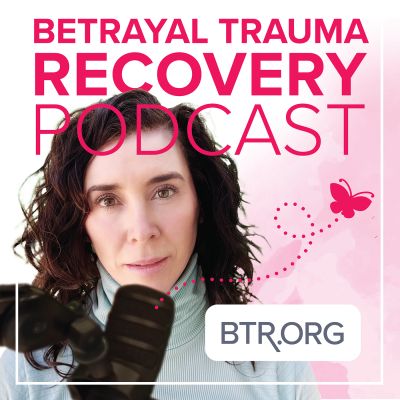btr.org - btr.org has daily, online Group and Individual Sessions for victims of emotional & psychological abuse and sexual coercion. For women experiencing pain, chaos, and isolation due to their husband’s lying, gaslighting, manipulation, porn use, cheating, infidelity, emotional abuse, and narcissistic abuse. Labeling a victim as "codependent" is a form of victim blaming. Pornography addiction / sex addiction are a domestic abuse issue. Narcissistic abuse is not a communication issue. We help women who are married, separated, or divorced heal through establishing emotional safety. If you suspect your husband is a narcissist, a pornography addict, or emotionally abusive, this podcast is for you. Every woman on our team has experienced betrayal trauma first hand. To learn more about Betrayal Trauma Recovery, visit BTR.ORG
https://www.btr.org/podcast/
episode 168: My Husband Calls Me Abusive
When women come to Betrayal Trauma Recovery, they often ask the question, "Well, what if I'm the abuser? My husband calls me abusive all the time." These women have been betrayed, emotionally abused, sexually coerced, and oftentimes physically assaulted by their abusive partners.
How can an abuse victim wonder if she is actually the abuser?
It's actually a very common false belief that betrayal trauma victims must process and work through. Sarah McDugal from Wilderness to Wild returns to the free BTR podcast to take a deep dive into how an abuser's devaluing makes a victim question her own worth to the point where she may wonder if she is actually the abuser. Listen to the free BTR podcast and read the full transcript below for more.
Why Does My Husband Call Me Abusive?
It's important to understand that in a marriage marred by betrayal, there is one victim and one perpetrator.
Abusers will do just about anything to take on the victim role because it enables them to keep on abusing while shifting blame, shame, and responsibility onto the real victim's shoulders.
Calling you abusive when you are the victim is a serious form of devaluing. Devaluing is a psychologically lethal tactic. If he can keep you certain that you have little to no worth, he feels control over you in the assurance that you probably won't set boundaries to protect yourself from his abusiveness.
https://www.youtube.com/watch?v=atXtC330ITw
This Is Why You're Not The Abuser
If your abusive husband accuses you of being abusive, consider this question:
Do I feel entitled to control my husband or am I trying to re-establish safety?
Abusers will label boundaries, limits, and safety-seeking behaviors as controlling, codependent, and abusive.
But if you ground yourself in the truth and make your safety your priority, you can rise above the fog of abuse and begin your journey to healing.
Why Does Protecting Myself Feel "Abusive"?
Have you tried to set boundaries to no avail? Have you set limits, left, or made requests but felt guilty or ashamed for "controlling" your husband?
Sarah McDugal explains:
You have every right to live in a home environment that is free of chaos, and control, and infidelity. You have every right to live in an environment of peace and truth and harmony. You have the right to choose that, and that environment is what God wants for you as his daughter.
Sarah McDugal, Wilderness to Wild
Abusers revolt against boundaries. Whether with violence and aggression or passive-aggressive sulking and silent treatments, their revolts can feel overwhelming and leave even the strongest of women feeling powerless.
You are strong. You are capable. You are worth it. You can do this. You don't have to do it alone.
Betrayal Trauma Recovery Can Help You Set Boundaries
The Betrayal Trauma Recovery Group is a fantastic resources for women seeking help in learning how to set and maintain safety boundaries.
